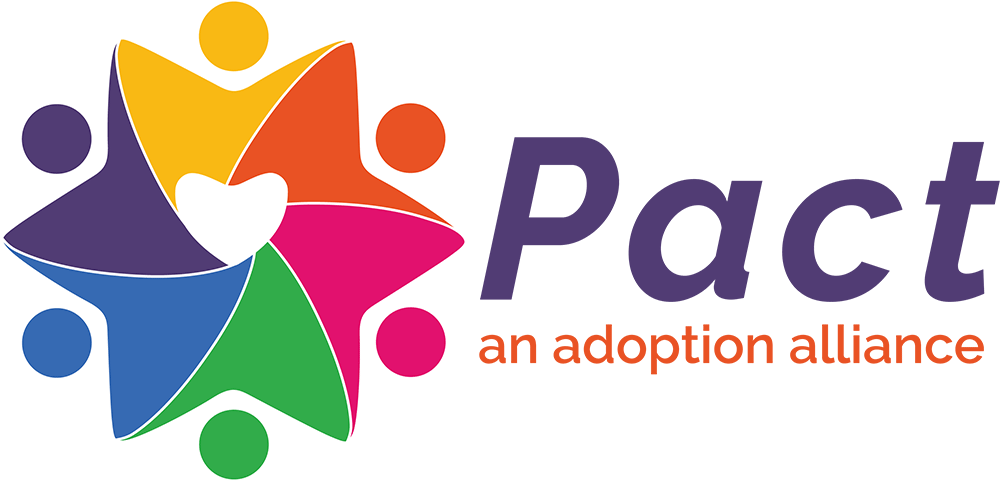by April Dinwoodie
2018
Growing up as a transracially adopted person in the seventies and eighties, I never imagined it would be harder today than it was then to move through the world as a person of color. While there was a stark lack of diversity in rural Rhode Island where I grew up, there was also a layer of protection from racial injustices. To be sure, injustices were happening. But most of us thought the occasional news items were exceptions. We thought, naively, that things had gotten so much better for Black and brown people since the Civil Rights movement.
Today, with the help of technology, we see injustices happening all around us in real time, providing very clear examples that things have not changed nearly enough; we still have so much work to do to ensure the safety and well-being of Black and brown people, especially in transracial adoption. As professionals and parents, we are charged with facilitating healthy identity development for adopted kids of color, but even more important and fundamental are our conscious efforts to protect the physical and emotional safety of the Black and brown children we adopt.
Given the current climate in America as it pertains to race, class and culture, we can no longer rest on the utopian fallacy of a “color-blind” society. It is more important than ever that families are hyper-vigilant when it comes to such differences, and that they see clearly the impact of these differences on transracially adopted people and their families, regardless of adoption type.
With this awareness, and as a transracially adopted person, there are certain things I need from the people who love and support me.
- Please don’t say, “I simply don’t see color…” Being colorblind is not the answer. As well-intended as this concept is, the idea—naïve at best and harmful at worst—makes me cringe. Color-blindness is naïve because whether we like it or not, everyone sees and recognizes color and we act, in both big and small ways, on our biases and assumptions as we move through the world. And it’s harmful because when people claim they don’t see color, they really don’t see me. How can you truly love me, all of me, if you deny seeing the color of my skin? Seeing color also means seeing and celebrating the beauty and diversity in our families and recognizing the richness that can come with exploring different cultures and traditions.
- See yourself. You cannot authentically engage with me, understand where you are in relation to the world, and where you uniquely hold differences of race, class and culture, without deep, internal reflection. This self-exploration must begin with insight and empathy. Only when you do this internal work can you ask yourself the pointed, tough questions that will help you see yourself and me. Questions to explore might include:
- What are your personal biases and prejudices?
- What personal experiences have you had surrounding differences in race, class and culture?
- Have you ever been in a situation where you are the minority? If so, how did that feel?
- How do you define racism and discrimination?
- Do you know and understand your trauma and triggers around differences of race, class and culture?
- Do you know what a micro-aggression is?
- Don’t let strangers (or anyone really) touch my hair. Understand that when people invade my personal space to touch my hair, it is not cute or funny. This makes me uncomfortable and angry. As a young person, people were always in my hair, patting my head, rubbing my hair with a running (and unwelcome) commentary. “Ohhh, it is so soft,” or “It’s fuzzy,” or “It feels weird…” I never felt I could say no or tell them to stop for fear of angering the interloper and calling more attention to myself than there already was. I bit my tongue and let them touch my hair. This was only one of the things I kept inside and did not talk about. For a long time, I felt this was just something I had to endure. I often hear parents of transracially adopted children and young people saying they think their child loves it when people touch their hair; I think this is really complicated. For me, even though inside I hated people touching my hair, I feigned happiness even when it was crushing. Now, as an adult, perfect strangers are still constantly reaching into my hair without permission. It is absolutely wrong for anyone to think they can touch a stranger without permission and even worse when a white person invades the space of a person of color to touch their hair.
Today, we continue to witness examples of Black and brown people being marginalized, brutalized, ignored, and left behind. Make no mistake; this is true across the socio-economic spectrum. If you are a transracial/transcultural family, having an authentic understanding of the differences of race, class and culture is just the beginning. Understanding must also be translated into behaviors infused into your family, extended family and, as much as possible, into your community.
Adding deep love to deep reflection and understanding of identity, privilege and place in the world as adults and parents, gives children the opportunity to fully embrace their complete identity, to love all parts of themselves, and be prepared for the realities that will echo throughout their lives.
April Dinwoodie is a nationally recognized thought leader on adoption and foster care and Chief Executive of the Donaldson Adoption Institute (DAI). She is also a co-founder and Vice President of the Board of Fostering Change for Children, a progressive nonprofit that helps drive innovation in the child welfare system. April was a keynote speaker at the inaugural Pact Family Camp East in 2017.
